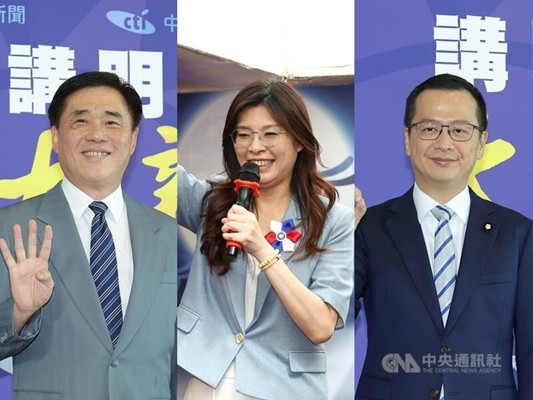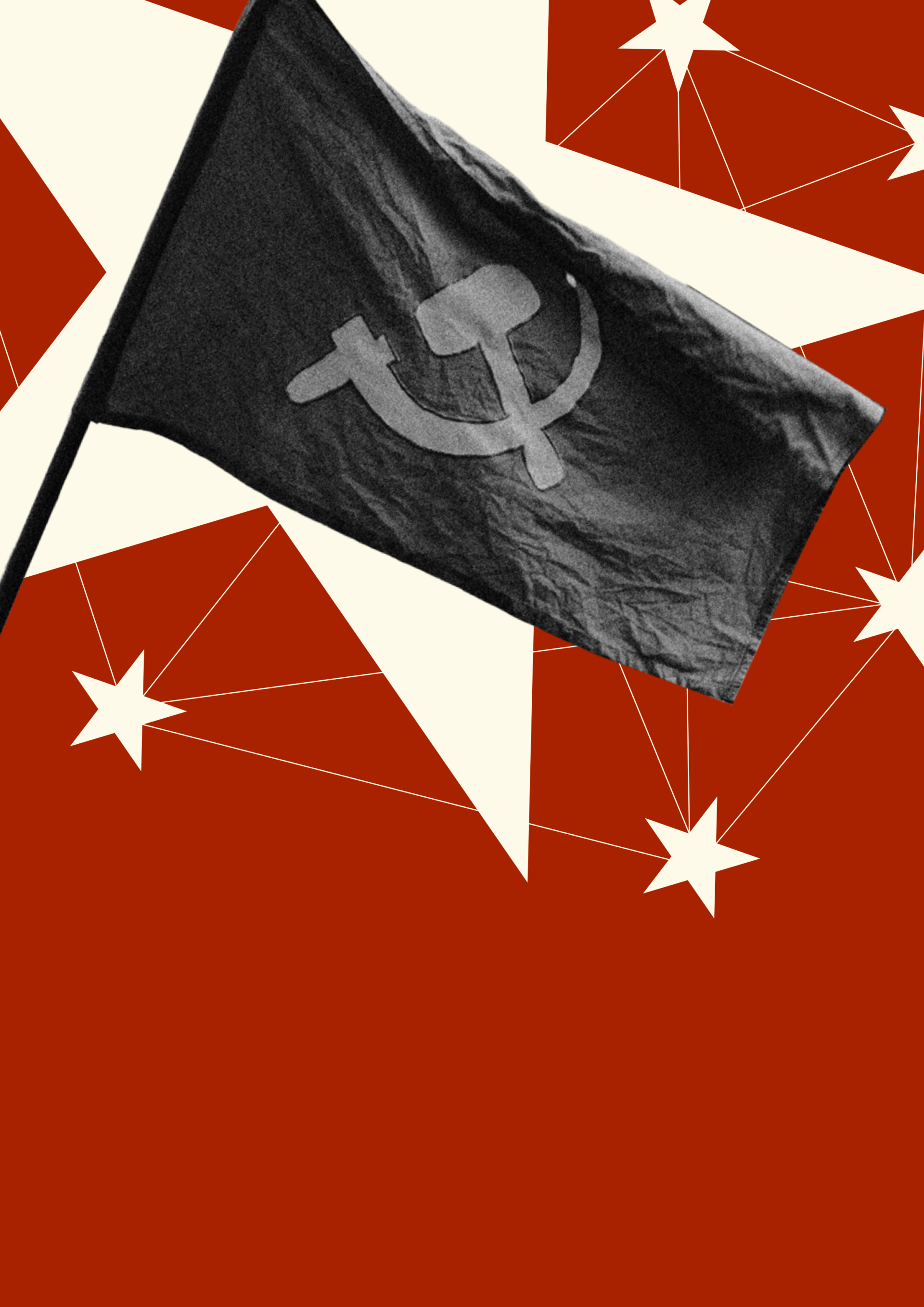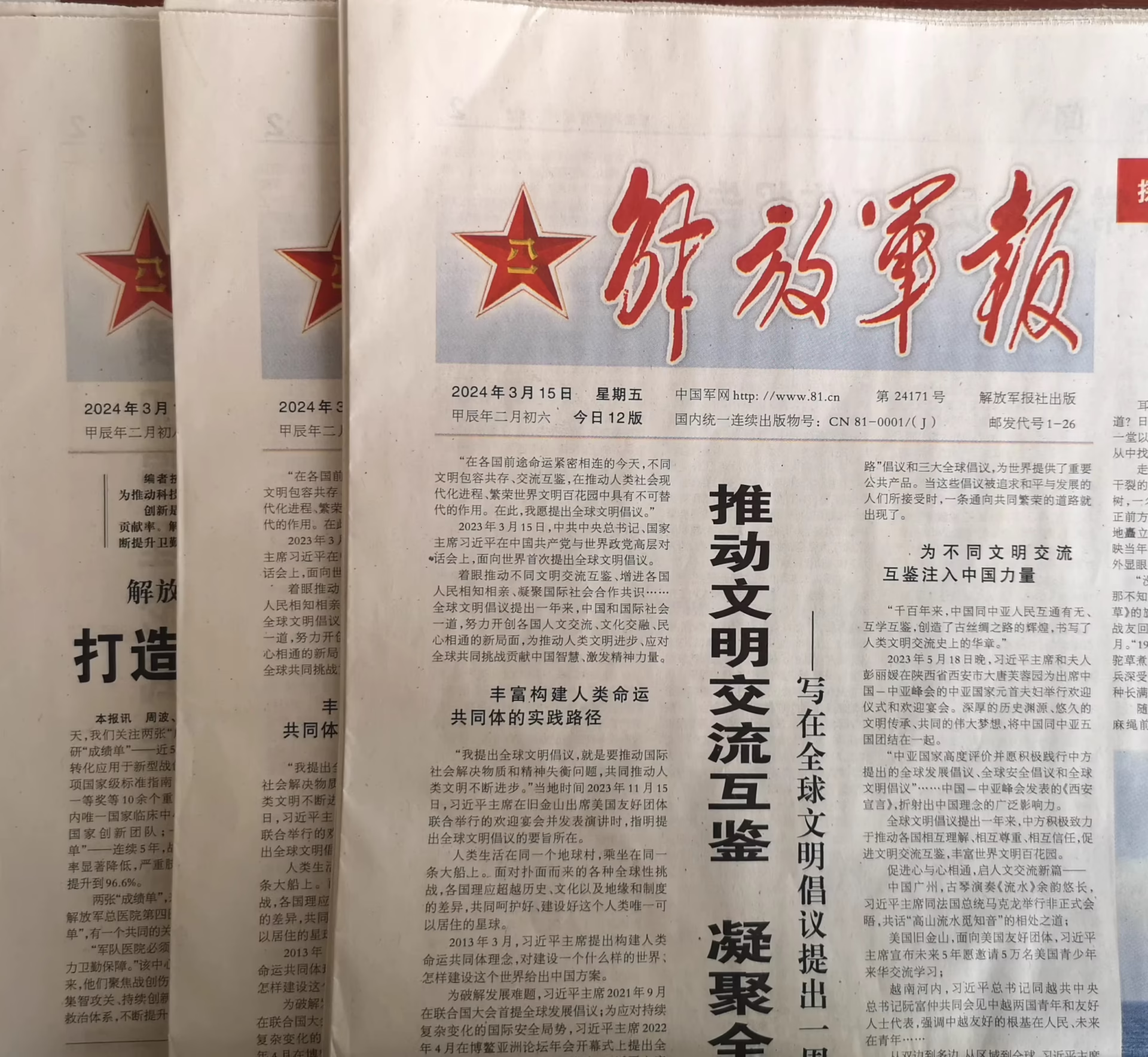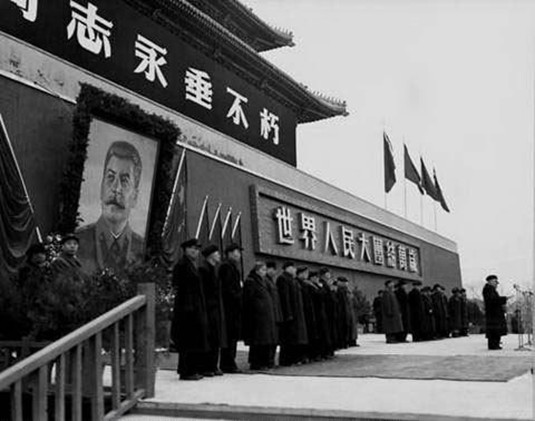
‘Mainlander’ Narratives Dominate Kuomintang Leadership Race
‘Mainlander’ Narratives Dominate Kuomintang Leadership Race
Executive Summary:
- Leading candidates in the KMT party chair elections strongly self-identify as Chinese and are advocating to resolve cross-Strait tensions with a dialogue approach rooted in the 1992 Consensus.
- Notably lacking amongst the leading candidates is someone who represents the “Taiwanese” faction of the KMT, and the three leading candidates—Cheng Li-wun, Hau Lung-pin, and Lo Chih-chiang—all carry benign views of the PRC.
- These candidates are also skeptical of U.S. involvement in Taiwan, and they have questioned the current DPP administration’s policies towards the United States, especially concerning tariff negotiations.
- KMT local factions and the party establishment’s support seem strongest for Hau, but Cheng and Lo have secured support from key party grandees.
- The party chair will have to marshal unity within the KMT and work with the TPP to defeat the DPP in upcoming elections in 2026 and the next presidential election in 2028.
On October 18, registered members of the Kuomintang (KMT), or Nationalist Party, will have the opportunity to vote for a new party chair. This chair will be expected to lead the party into the next nationwide “nine-in-one” elections in 2026 and the presidential election in 2028. [1] They also will be the person who determines the party’s cross-Strait policy (China Brief, July 11). In an interview in June, the outgoing KMT Chair Eric Chu (朱立倫) outlined many of the difficulties of the job. The challenges, according to Chu, ranged from fundraising and trying to lead the party with few resources to persecution by the ruling Democratic Progressive Party (DPP). Conventional wisdom has held that the KMT should have a unified party leadership and presidential candidate. This would make Taichung Mayor Lu Shiow-yen (盧秀燕) the early favorite, as she has been recognized in Taiwan as the most potent KMT presidential candidate for 2028. But Chu characterized the KMT chair role to a head coach who cannot expect to play on the field (UDN, May 26; Taipei Times, June 7). In the months since, three leading candidates have emerged, none of whom seem to be likely presidential candidates: Cheng Li-wun (鄭麗文), Hau Lung-pin (郝龍斌), and Lo Chih-chiang (羅智強).
From a U.S. perspective, the commonalities among Cheng, Hau, and Lo suggest a troubling direction for the KMT. Pro-U.S. lawmakers and party officials are notably absent from the race. Instead, the KMT’s long-simmering resentment of the United States—stemming in part from historical U.S. betrayals in the 1940s and the normalization of relations with Beijing in 1979—continues to manifest in the candidates’ public comments. All three believe that an accommodation can be reached with the Chinese Communist Party (CCP) in Beijing, retaining the Republic of China (ROC) and built around the “1992 Consensus” (九二共識) under which both sides recognize “One China, different interpretations” (一個中國,各自表述). To the extent that these candidates reflect the broader KMT membership, they indicate that the party increasingly believes that Taiwan’s security runs through Beijing—not through Washington.
Predominance of KMT ‘Mainlanders’
All three of the major KMT candidates are “mainlanders” (外省人). The term, which literally refers to people born outside of Taiwan Province, is used for those whose families are often no more than one generation away from China and often claim a Chinese identity. Both Cheng and Hau’s fathers were KMT military officers who came to Taiwan as the CCP drove the nationalists from what would become the People’s Republic of China (PRC) (BBC Chinese, April, 3, 2020; UDN, September 27). Lo’s family hails from the then-ROC governed Dachen Islands off of Zhejiang Province, and evacuated to Taiwan in 1955 during the First Taiwan Strait Crisis when they were taken by the PLA (Presidential Office, Taiwan, February 20, 2015). All of them grew up in an environment that honored the KMT’s legacy of patriotic resistance to Communist banditry (共匪) and held out for one day retaking the mainland (反攻大陸).
For many “mainlanders,” Chinese identity forms a core part of their beliefs. Cheng, for example, has been explicit about this. She has said that under the KMT’s leadership, Taiwanese people should be able to say, proudly and confidently, “I am Chinese” (我是中國人) (Liberty Times, September 29). Lo Chih-chiang stated that the most important aspect of cross-Strait relations and relations between the KMT and the CCP is, on an emotional level, self-identification as ethnically Chinese. He followed up by noting, “I am Taiwanese, I am Chinese, and my China is the Republic of China” (我是台灣人,我是中國人,我的中國是中華民國) (Facebook/Lo Chih-chiang, September 20).
That the leading candidates are all “mainlanders” indicates the full spectrum of KMT opinion is not being debated as part of the party’s future direction. The KMT is no longer homogeneous in its traditional mainlander identity after several generations in Taiwan with no hope of unification on ROC, not CCP, terms. The party has a growing number of officials who are trying to find ways to reconcile the Taiwanese-ness of their electorate and the Chinese-ness of being the Republic of China. The absence of those officials from the KMT leadership conversation suggests that the party’s powerbrokers are pushing the “mainlander” perspective, and/or that the party does not yet have a place for KMT’s candidates more grounded in Taiwan.
Benign Views of the CCP’s Intentions
All three candidates share benign views of the CCP, its intentions, and the kind of stability that can be brought to the Taiwan Strait. Each strongly supports the “1992 Consensus,” seeing it as a guarantee for peace (CTI, September 27). Lo stated that the presidency of Ma Ying-jeou (2008–2016) proved the “1992 Consensus” can bring prosperity to Taiwan and stabilize cross-strait relations. Going further, Cheng said that if the DPP could be pushed aside and the KMT could bring order out of the current chaos by “crushing Taiwanese independence and fascism” (粉碎台獨、法西斯), then the “1992 Consensus” could usher in 100 years of peace (CNA, September 20). Both Lo and Hau stated their belief that communication and improved mutual understanding could stabilize relations with Beijing (Storm Media, August 29; CNA, September 23).
Hau probably has the most cautious appraisal of the CCP. Ahead of the PRC’s military parade on September 3, Hau called for Taiwanese generals to avoid the parade. He noted that the CCP had invited his father, former Premier and former Defense Minister Hau Pei-Tsun (郝柏村), many times, but his father always refused. Hau said that China’s achievements during the Second World War “belong to the Republic of China and cannot be mistaken or confused” (屬於中華民國,不能被錯置或混淆), adding that without the ROC’s role Taiwan would not have become part of the republic (UDN, September 3). At the very least, Hau demonstrates an awareness of how the CCP politicizes cross-strait interactions, as he also beseeched the Taiwanese people to have confidence in their ability to counter united front work (CNA, September 23).
Hau also stated that it is important for the PRC to “respect the reality that the Republic of China exists,” (中國應尊重中華民國存在的事實) and to have the PRC recognize that the “1992 Consensus is not the same as ‘One Country, Two Systems’” (九二共識不等於一國兩制) (UpMedia, September 25). Hau concluded by saying that the mainland is unfriendly to Taiwan, citing PLAAF incursions and military exercises. If elected, Hau vowed to establish a defense think tank comprised of retired KMT generals to “defend the Republic of China, oppose Taiwan independence, and ensure the most reliable protection for national security and defense”( 捍衛中華民國、反對台獨,讓國家安全與國防獲得最確切的保障) (TaiSounds, October 3).
Even with Hau’s displeasure with PLA activity around Taiwan, the candidates are still not expressing the full range of sentiment within the party itself about CCP intentions. Others in the KMT have darker perspectives on what Beijing wants, including the destruction of the ROC, and fear that the CCP no longer cares who governs in Taiwan. The leadership race, however, appears to have firm boundaries on the range of acceptable views.
Against Defense Increases
The KMT candidates are not proponents of Taiwan increasing its defense spending. They prefer to view national security through the lens of stabilizing cross-strait relations. Speaking at the Taiwan Foreign Correspondents’ Club last month, Cheng said that she did not support the defense budget surpassing 3 percent of GDP. She went on to say that “political reconciliation” (政治和解) with the PRC was the national security and defense armament Taiwan needed (Mirror Media, September 23). In a debate among the candidates, Luo also stated that he opposed increasing the defense budget to 5 percent of GDP, calling it an “unbearable burden for Taiwan” (台灣不可承受之重). Hau concurred, saying that 5 percent of GDP would consume approximately one third of the government’s total budget. Unlike the other KMT candidates, however, he conceded that Taiwan needed both to prepare for war and to avoid war, calling cross-Strait stability and opposing Taiwan independence the best form of defense (UDN, October 2). Although this may go beyond the scope of the KMT chair, the contenders have not proposed alternative defense measures to build Taiwan’s capabilities in the absence of a budget increase or to correct the damage done to the armed forces under the Ma administration (China Brief, April 22, 2011; June 7, 2013; August 22, 2016).
‘No Kneeling to the United States’
Resentment and distrust of the United States have long been present in the KMT. Many party officials believe—with some justification—that the United States betrayed them during the Chinese Revolution, and again in the 1970s with the Kissinger-Nixon opening and the normalization of U.S.-PRC relations. Historical grievances might be left behind, but U.S. failures to deliver weapons Taipei has purchased, price gouging, and any reports of Taiwan surfacing in Washington’s engagements with Beijing, continue to aggravate (Taiwan Reporter, October 10, 2021; Taiwan News, September 24, 2024; Focus Taiwan, November 20, 2024; War on the Rocks, March 28). In his conversation at the Taiwan Foreign Correspondents’ Club, Cheng clearly expressed fears that Taiwan could once again become a bargaining chip between Beijing and Washington if it is too aligned with the United States: “Taiwan would inevitably be involved, but we wouldn’t have any say in it” (Nikkei Asia, October 1).
At their worst, these sentiments come out in sarcastic and caustic comments. For example, following a CCP military exercise in June, Cheng mocked President Lai Ching-te’s (賴清德) seeming inability to respond. She accused Lai of having no way to counter Beijing or the CCP and that, in the face of U.S. pressure, he kneels and fawns, offering up Taiwan’s economic achievements: “If this isn’t ‘selling out Taiwan,’ then what is? If this isn’t ‘squandering the family fortune,’ then what is?” (這不叫賣台?什麼是賣台?這不叫敗家?什麼是敗家?) (CTI News, June 21). Hau also accused President Lai of undermining Taiwan’s sovereignty in the ways that he acquiesced to U.S. requests (UDN, September 19).
All three candidates have framed the best way of dealing with the United States as balancing its relationship with the PRC. Hau, for example, has complained that Taiwan is practically paying tributary duties to the United States. He proposed “Three No’s” (三不): “Be close to the United States, but do not kowtow; be peaceful with China, but do not be lapdogs of the CCP; be friendly with Japan, but not fawning” (親美不跪美、和中不舔共、友日不媚日) (UDN, September 19). In the same leadership debate, Hau said it is possible to be pro-American without kneeling before the United States (UDN, October 2). In August, Cheng said that the KMT needed to adjust Taiwan’s relationship with the United States in light of tariffs imposed by the Trump administration and strive for a greater Taiwanese role in the PRC’s market as an antidote to U.S. pressure (CRNTT, August 4).
KMT’s Future Leader not Receptive to U.S. Demands
The outcome of the KMT leadership race will shape the party in the years ahead. These years are critical, as the new leader will lead the party into both the “nine-in-one” elections next year and the presidential election in 2028. In the former, every position from local government to the Legislative Yuan will be up for grabs. They will be a test of the Lai administration’s ability to address pressing domestic economic issues as well as the KMT’s ability to build on its legislative majority. In 2028, the KMT be looking to break a three-election losing streak. Given that a split ticket with the Taiwan People’s Party (TPP) in 2024 allowed President Lai to win the presidency without a popular majority, it is understandable that all the candidates have been careful to support the Blue-White alliance and avoid antagonizing TPP supporters (CTI News, September 10; CNA, September 20; UDN, October 3). As long as the TPP remains a viable political force, it can strip votes from the KMT’s Taiwanese base that is sometimes uncomfortable with the “Chinese-ness” of the party’s narratives.
The KMT chair race also has important implications for understanding who matters in the KMT today. Hau Lung-pin appears to be the party’s internal favorite. Local faction leaders have tacitly placed their support behind him. This includes Fu Kun-chi (傅崐萁), the powerful legislative caucus whip, who has decided not to run but to throw his support behind Hau (ETtoday, September 23). Hau also secured endorsements from influential local political figures such as Pingtung Speaker Chou Tien-lun (周典論), Changhua Speaker Hsieh Tien-lin (謝典林), and former Taitung Speaker Wu Chun-li (吳俊立). In central Taiwan, former three-term Taichung Mayor Jason Hu (胡志強) has endorsed Hau (Tai Sounds, September 19; CTS News, September 22). Yunlin’s Chang Jung-wei (張榮味), closely connected to Legislative Yuan President Han Kuo-yu (韓國瑜), is also backing Hau. Hau opted to skip the first KMT chairperson candidates’ debate to meet Han Kuo-yu in Yunlin (CNA, September 20) Beyond the party’s politicians, media figure and “Battle Blue” (戰鬥藍) founder Jaw Shaw-kong (趙少康) said that he would support Hau if he ran. This would provide Hau with deeper access to the party’s conservative base and media resources (TVBS, September 4).
Lo Chih-chiang, meanwhile, has former President Ma Ying-jeou as a key supporter. Lo worked on Ma’s campaign and as a senior staffer in the presidential office (Storm Media, August 29). Some polls, however, put Cheng Li-Wun as leading the race. Having emerged as an outside and unexpected candidate, her longstanding ferocity in defending the KMT and the Republic of China has earned her respect among former military officers and deep blue supporters (CTI News, September 10; Nikkei Asia, October 1). Former Interior Minister Lee Hong-Yuan (李鴻源) and former Legiislative Yuan President Wang Jin-pyng (王金平) has endorsed Cheng, supporting generational turnover in KMT leadership (TVBS, September 30; UDN, October 1).
Notably absent from endorsements is Taichung Mayor Lu Shiow-yen, the early favorite to be the KMT presidential candidate in 2028. Although the election is still three years away, Lu leads one of Taiwan’s most important cities and one that has flipped between DPP and KMT control. She has met with all three of the candidates, but has refrained from endorsing them—presumably out of concern for having comity with party headquarters for her presidential run (UDN, September 21; CNA, September 25, September 30). Many previously believed that she intended to run for party chair, but it appears that she will focus her efforts on governing Taichung and preparing for a presidential run rather than trying to strengthen the KMT and making peace across the party’s factions (Taipei Times, May 23; CNA, August 11).
For the United States, the KMT represented by these leadership candidates is unlikely to be receptive to U.S. entreaties about defense budgets or preparing for war. They lack a sense of urgency about the CCP threat. It is unclear whether they believe that Beijing actually would attack or blockade Taiwan, given their faith exhibited in the “1992 Consensus” as a shield. Blunt, untargeted U.S. pressure on the KMT as a whole or threatening to abandon Taiwan is more likely to reinforce problematic narratives discussed above. All three candidates—and many others in the party—think that the best counterbalance to U.S. pressure is a closer relationship with the PRC. Effective pressure would avoid “U.S. abandonment narratives” (疑美論) while addressing the genuine power structure within the KMT that can be seen from the candidates’ scramble for endorsements.
Notes
[1] In Taiwan, local elections have been referred to as “nine-in-one” elections since 2014. This is because candidates compete for nine different kinds of local government roles. These include city mayors, city councilors, heads of county and county-level city governments, members of county councils, heads of township offices, representatives in township councils, ward and village chiefs, and heads of indigenous districts, and council members of indigenous districts (Focus Taiwan, October 18, 2022).


